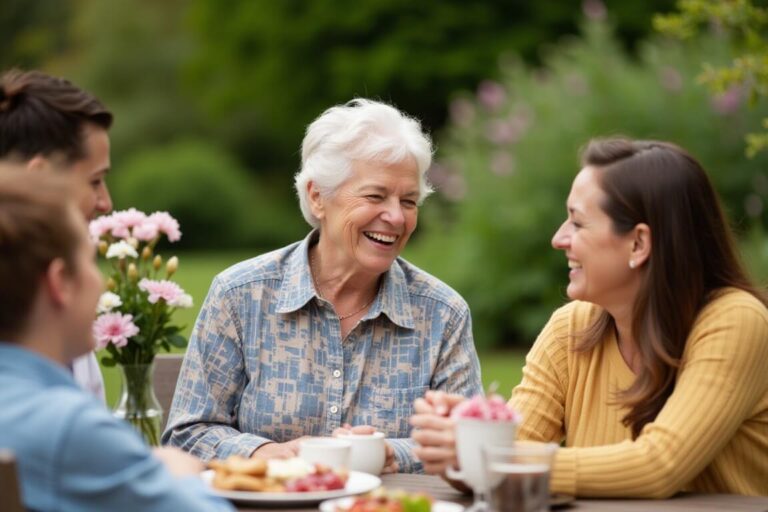The question of whether single women outlive their married counterparts has been swirling through research circles and social media feeds for years.
A number of studies report that single women tend to be healthier and less depressed, living longer than married women.
But before you tear up those wedding invitations or file for divorce, the reality is far more nuanced than provocative headlines suggest.
What the data actually reveals is a fascinating tapestry of biological, social, and psychological factors that paint a much more complex picture of women’s health across different life paths.
When Numbers Tell Different Stories
The marriage and longevity debate begins with understanding what the research actually shows.
Between 65 and 85 years, married men and women had a longer TLE and ALE than unmarried men and women.
At first glance, this suggests marriage provides a protective effect. However, the devil lives in the details, particularly when we examine how this plays out differently for each gender.
For example, a 65-year old married woman was expected to live an additional 21.1 years, 1.5 years (8%) longer than a 65-year old unmarried woman.
While married women do show longevity benefits, the advantage is notably smaller than what married men experience.
A 65-year old married man was expected to live an additional 18.6 years, 2.2 years (14%) longer than a 65-year old unmarried man.
What’s particularly intriguing is how these patterns shift across age groups. This protective effect of marriage with regard to life expectancy lessened with age and disappeared among participants greater than 85 years old.
The implication? The supposed benefits of marriage may be more temporary than we initially believed.
But here’s where things get interesting. For women, age-adjusted death rates for married women aged 25 and over were the lowest of all marital status groups, yet widowed women had the highest age-adjusted death rates for women aged 25 and over.
This creates a puzzle: if marriage is so protective, why do widowed women fare worse than their never-married sisters?

The Hidden Costs of “Happily Ever After”
While marriage may offer certain health advantages on paper, the lived experience for many women tells a different story.
Research reveals that women often pay a hidden price for their partnerships that doesn’t always show up in the longevity statistics.
The Stress Response Difference
Women’s bodies respond to relationship stress in fundamentally different ways than men’s do.
Women appear to function as the ‘barometers’ of distressed marriages and are in part more sensitive to negative marital interactions than men.
This heightened sensitivity manifests in measurable physiological changes.
The women whose cortisol increased as they recounted their marital history earlier on were more than twice as likely to be divorced a decade later.
The stress hormone cortisol, when chronically elevated, wreaks havoc on women’s health in ways that extend far beyond momentary discomfort.
Women may be more likely to suffer from increased levels of cortisol and chronic stress due to societal pressures. You may put pressure on yourself to juggle work, childcare, cook, clean and maintain a healthy lifestyle.
This chronic elevation of stress hormones can lead to a cascade of health problems, from disrupted sleep patterns to compromised immune function.
The Invisible Labor Load
Modern marriage often comes with an unequal distribution of what researchers call “invisible labor.”
Women still carry the lion’s share of domestic responsibilities, even when working full-time. They are more likely to be primary caregivers, not just for children, but also for aging parents and other family members.
This caregiving burden extends beyond simple household chores. They’re expected to be nurturing, organized, emotionally available, physically attractive, and endlessly self-sacrificing.
The constant juggling act takes a measurable toll on women’s stress systems and overall health.
Middle-aged people, and in particular women, have also been described as the “sandwich generation,” since they are often “sandwiched” between taking care of growing children and aging parents.
This caregiving responsibility can significantly impact a woman’s ability to prioritize her own health and well-being.
Why Single Women May Have the Last Laugh
The picture becomes clearer when we examine what single women gain by flying solo.
One possibility is that by living alone instead of with a husband and children, women are liberated from traditional roles and expectations.
Freedom from Traditional Constraints
They are no longer the short-order cook, the cleaner, and the laundress for a family. They are freed of the emotional work of shoring up egos and soothing bruised feelings.
They don’t have to account to someone else for the money they spend. This liberation from traditional domestic roles allows single women to redirect their energy toward their own health and happiness.
Social Network Advantages
Research suggests that single women often cultivate richer, more diverse social networks than their married counterparts.
Among lifelong single people, women often do particularly well in later life. The investment in multiple relationships, rather than concentrating emotional energy in one partnership, may provide better long-term social support.
Economic Independence and Decision-Making
Single women have complete autonomy over their financial and health decisions.
They can prioritize preventive healthcare, pursue career opportunities without negotiating with a partner, and make lifestyle choices based solely on their own well-being.
The Marriage Paradox for Men vs. Women
The benefits of marriage appear to flow more generously toward men than women, creating what researchers call the “marriage paradox.”
However, men married to women tend to see additional longevity benefits than women married to men, for several possible reasons.
Why Men Benefit More
Female spouses may be looking out for their male partners, reinforcing healthy behaviors and providing more opportunities for healthy choices.
On the flip side, married men are less likely to attempt to influence their wives’ health behaviors.
This creates an imbalanced dynamic where women serve as health managers for their husbands while receiving less reciprocal care.
Women tend to take the lead in promoting healthy behaviors, benefiting their husbands.
The emotional labor of maintaining both partners’ health often falls disproportionately on women, leaving them with less energy to focus on their own well-being.
The Inflammation Connection
The physiological differences extend to how men and women process relationship stress.
One study related to marital quality, gender and inflammation found a connection between lower levels of spousal support and higher levels of inflammation for women, but not men.
This suggests that women’s bodies pay a steeper biological price for relationship discord.

Age Gaps and Other Marriage Factors
Even within marriage, certain factors can significantly impact women’s longevity prospects. The greater the age difference from the husband, the lower the wife’s life expectancy.
This is the case irrespective of whether the woman is younger or older than her spouse.
The best choice for a woman is to marry a man of exactly the same age; an older husband shortens her life, and a younger one even more so.
The researchers suggest this may be due to social sanctions and reduced support for relationships that deviate from conventional norms.
The Biological Reality Check
It’s crucial to understand that while single women may have certain advantages, the overall picture isn’t entirely one-sided. Married men and married women live, on average, two years longer than their unmarried counterparts.
However, this statistic masks significant individual variation and doesn’t account for the quality of those additional years.
The Never-Married Factor
Interestingly, among unmarried categories, having never been married was the strongest predictor of premature mortality.
This suggests that the act of choosing to remain single throughout life, rather than experiencing the dissolution of a relationship, may carry different health implications.
Cohabitation as a Middle Ground
Modern research also examines cohabitation as an alternative to traditional marriage.
We find that on average, all cohabiting individuals enjoy higher life expectancies compared to their single counterparts, i.e., compared to widowed, divorced, and never married individuals that live alone.
This suggests that companionship itself, rather than the legal institution of marriage, may provide many of the health benefits.
What This Means for Your Life Choices
The research doesn’t advocate for any particular relationship status but rather illuminates the complex factors that influence women’s health and longevity.
The key takeaway isn’t whether to marry or stay single, but rather how to optimize your health regardless of your relationship status.
For Single Women
If you’re single, embrace the autonomy this provides.
Invest in diverse social connections, prioritize your health without compromise, and recognize that your choice to remain unpartnered doesn’t doom you to loneliness or poor health.
Build a support network that extends beyond romantic relationships.
For Married Women
If you’re married, be aware of the potential pitfalls that disproportionately affect women in partnerships. Advocate for equitable distribution of household and emotional labor.
Maintain your individual identity and friendships outside the marriage. Don’t sacrifice your health and well-being for the sake of keeping everyone else happy.
For Everyone
Regardless of relationship status, focus on stress management, cultivate meaningful social connections, prioritize sleep and nutrition, and maintain regular healthcare.
Creating and maintaining strong social ties and engaging with one’s community go a long way when it comes to health.

The Bottom Line
The question of whether single women live longer than married women doesn’t have a simple yes or no answer.
The research reveals that while marriage can provide certain health benefits, these advantages often come with hidden costs that disproportionately impact women.
Single women may indeed have longevity advantages in certain circumstances, particularly when they’re able to avoid the chronic stress and unequal labor distribution that characterizes many traditional marriages.
Perhaps the real question isn’t about marital status at all, but about creating relationships and life structures that support rather than undermine women’s health and happiness.
Whether single or partnered, the goal should be building a life that allows you to thrive, both in terms of years lived and quality of life experienced.
The most empowering takeaway? You have more control over your health outcomes than your relationship status might suggest.
The choices you make about stress management, social connections, and self-care matter far more than whether you wear a wedding ring.
In the end, the secret to longevity might not be found in your marital status, but in your commitment to your own well-being.


